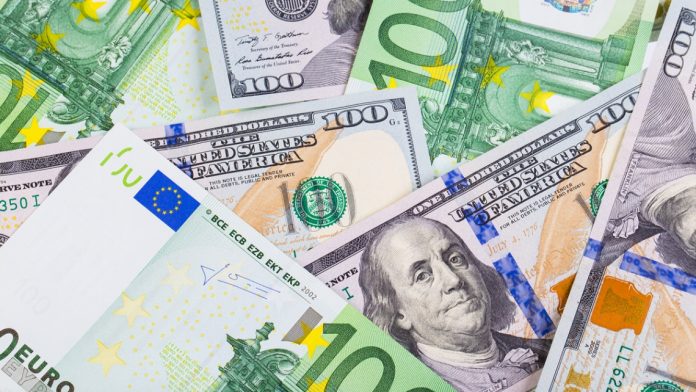The pound sunk versus the euro in the previous session. The pound euro exchange rate dropped over 1.1% hitting the lowest point of €1.0812. The pound has already shed 1.2% versus the euro this month, extending losses of 1.7% from the previous month. Sterling is moving higher in early trade on Tuesday.
| What do these figures mean? |
| When measuring the value of a pair of currencies, one set equals 1 unit and the other shows the current equivalent. As the market moves, the amount will vary from minute to minute. If the euro amount increases in this pairing, it’s positive for the pound.
Or, if you were looking at it the other way around: 1 EUR = 0.87271 GBP In this example, €1 is equivalent to approximately £0.87. This measures the euro’s worth versus the British pound. If the sterling number gets larger, it’s good news for the euro. |
The pound slumped to a 23-month low versus the euro in the previous session a fears of a no deal Brexit grew. Boris Johnson’s official spokesman made one of the clearest affirmations so far that the UK will leave the European Union on 31st October, regardless of any moves made by Parliament. The spokesman insisted that politicians can’t pick and choose which votes to respect. “They promised to respect the referendum result and we must do so.”
The pound fell even though the UK service sector activity unexpectedly increased in July, offsetting weakness in the manufacturing and construction sectors reported at the end of last week. The service sector PMI increased to 51.4 in July, its highest reading since October last year. However, this improvement is unlikely to be the start of a new trend. Fundamental weakness in the sector continues in the middle of the ongoing Brexit uncertainty and slowing global growth.
Today there is no high impact data to distract investors from Brexit developments. The pound is edging higher as opposition continues to grow against Boris Johnson’s no deal Brexit plans. Leader of the opposition Jeremy Corbyn saying he will hold a vote of no-confidence in September is providing some optimism that a no deal Brexit could be avoided.
| Why is a “soft” Brexit better for sterling than a “hard” Brexit? |
| A soft Brexit implies anything less than UK’s complete withdrawal from the EU. For example, it could mean the UK retains some form of membership to the European Union single market in exchange for some free movement of people, i.e. immigration. This is considered more positive than a “hard” Brexit, which is a full severance from the EU. The reason “soft” is considered more pound-friendly is because the economic impact would be lower. If there is less negative impact on the economy, foreign investors will continue to invest in the UK. As investment requires local currency, this increased demand for the pound then boosts its value. |
German Factory Orders In Focus
The euro was in favor on Monday thanks to better than forecast PMI data from Italy and a sharp fall in the dollar. The euro trades inversely to the dollar, so when the dollar declines the euro rallies. In the previous session the dollar dropped amid an escalation in US — Sino trade tensions. In the wake of US President Trump applying 10% tariffs to $300 billion worth of Chinese imports, China devalued the yuan to counteract the tariffs. This is the first time that China has retaliated in such a firm way. China is sending a message that it will not back down and dollar traders believe this trade war could continue for the foreseeable future. The dollar plunged boosting the euro.
Today German factory orders will be in focus. German factory orders declined a huge -2.2% in May. Analysts are expecting a slight improvement in June with a 0.5% increase. A better than forecast reading could boost the euro further. This is because strong factory orders could indicate an expansion in the German economy and an inflationary factor.
| Why does strong economic data boost a country’s currency? |
| Solid economic indicators point to a strong economy. Strong economies have strong currencies because institutions look to invest in countries where growth prospects are high. These institutions require local currency to invest in the country, thus increasing demand and pushing up the money’s worth. So, when a country or region has good economic news, the value of the currency tends to rise. |
This publication is provided for general information purposes only and is not intended to cover every aspect of the topics with which it deals. It is not intended to amount to advice on which you should rely. You must obtain professional or specialist advice before taking, or refraining from, any action on the basis of the content in this publication. The information in this publication does not constitute legal, tax or other professional advice from TransferWise Limited or its affiliates. Prior results do not guarantee a similar outcome. We make no representations, warranties or guarantees, whether express or implied, that the content in the publication is accurate, complete or up to date.
The content at CurrencyLive.com is the sole opinion of the author and in no way reflect views of TransferWise Ltd.





